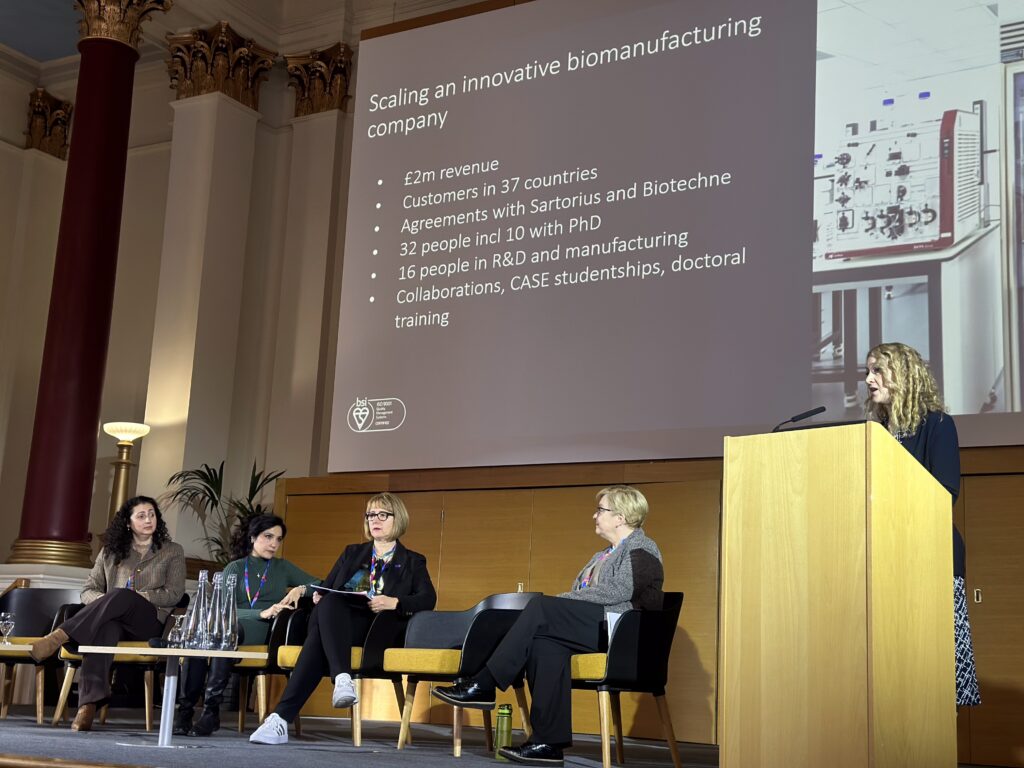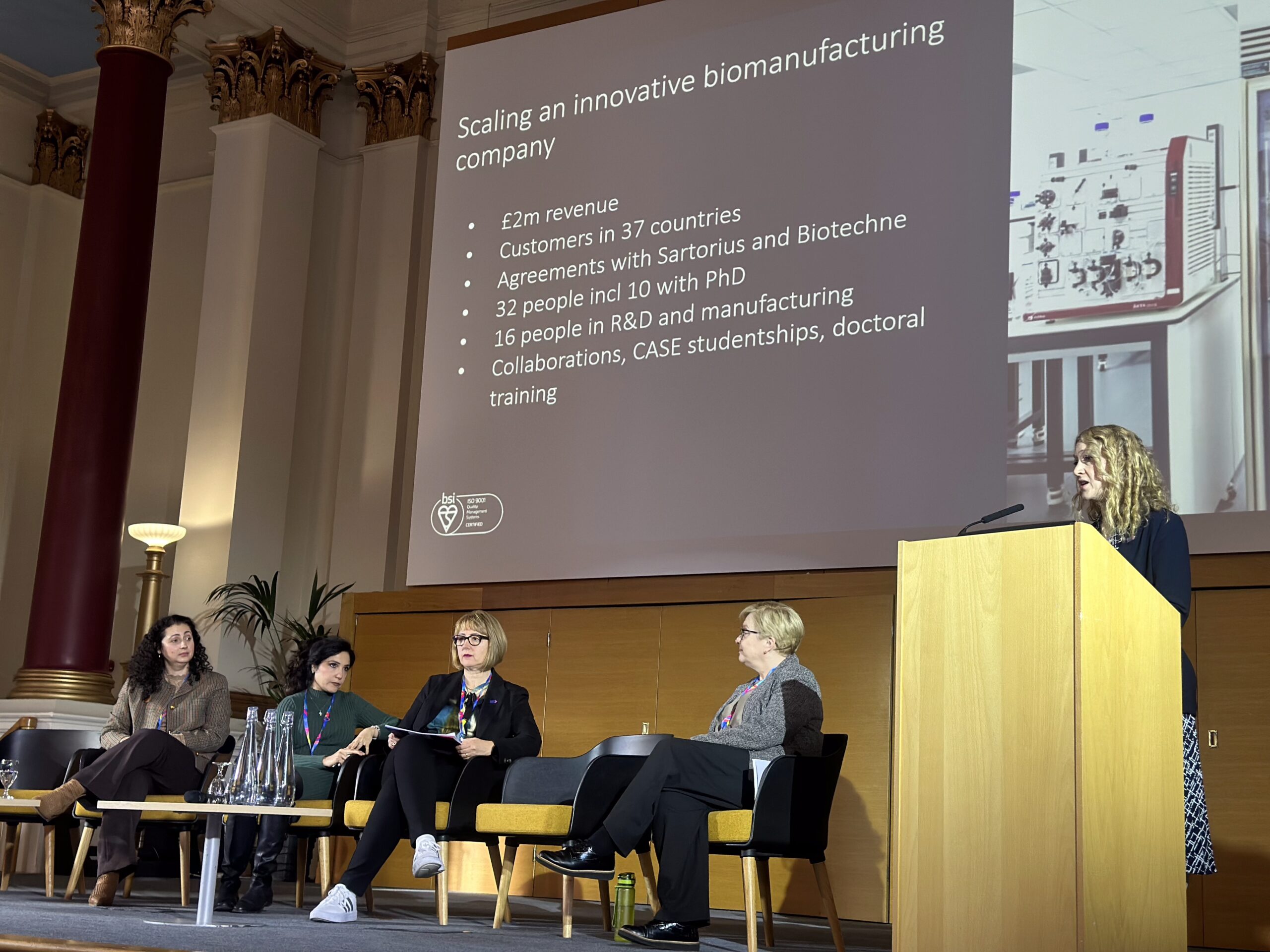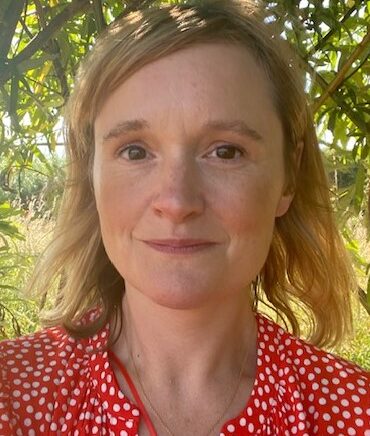While many Daphne Jackson Fellows return to academia, a fellowship can also prepare researchers for a wide range of leadership roles in both industry and academia.

Fellows know that careers rarely follow neat, linear paths. Each has left the research workforce for caring, family or health reasons and found a non-traditional route back to the work they love.
A fellowship can lead to many outcomes. Some former fellows return to teaching and research in academia, while others move into industry, found companies, or take on academic leadership roles. There is no single route to a research career, and no one “right” outcome from a Daphne Jackson Fellowship. Each fellowship is as unique as the researcher who holds it, and the careers that follow are just as varied.
At the last Daphne Jackson Conference, fellows shared how they had built careers beyond academic research, moving into leadership roles across both industry and academia.
Leading in industry
Many Daphne Jackson Fellows successfully transition into high-impact research roles in industry, including Dr. Judit Molnar. Her fellowship, “Functional and pharmacological characterisation of the monocyte-derived macrophage utility as a COPD-relevant inflammatory cell model,” hosted and funded by Pfizer, provided a critical platform for her to return to biotech research and development after a career break.
Judit says:
“The Daphne Jackson Trust offers a platform to update skills and re-enter the field of your choice.”
Following her fellowship, Judit took on senior roles at Pfizer and GSK before moving to leadership positions within innovative biotech companies, where she specialised in translational medicine and clinical development. She is now Executive Vice President and Head of Translational Development at NeoPhore Ltd, a pioneering UK biotech company developing next-generation immuno-oncology therapeutics aimed at transforming clinical outcomes for cancer patients.
Building new companies

Other fellows, like Dr Catherine Elton, chose to start their own companies. Catherine founded Qkine during her Daphne Jackson Fellowship, hosted and funded by the Wellcome Sanger Trust.
Qkine is a biomanufacturing company that produces high-purity, animal-free growth factor proteins to support stem cell research, organoids, regenerative medicine, and emerging fields such as cultured meat. After almost nine years as CEO at Qkine, Catherine is applying her experience as CBO at Axol Biosciences and Non-Executive Director at Atelerix.
Catherine would tell new fellows:
“Make your own luck, build your network, pay it forward, and be bold.”
Academic leadership
For others, like Dr Stephania Pasare, a fellowship can lead to academic leadership. Stephania’s fellowship, “Investigating cell extrusion and cell death during tissue morphogenesis,” was hosted by the University of St Andrews and funded by Medical Research Scotland.
After completing her fellowship, she became interested in the wider university environment and, following a postdoc, moved into student and career services. She is now Programme Manager at the Centre of Doctoral Training in Designing Responsible NLP at the University of Edinburgh School of Informatics. Overseeing this UKRI AI training programme, she is using her Higher Education experience to support doctoral students, manage a team, and collaborate with faculty, funders and industry partners to ensure the centre’s success.
Stephania would tell fellows:
“Be open to seizing unconventional career opportunities. Identifying mentors and learning from others’ careers pathways is important but success is personal so forge your own route to professional fulfilment.”
Daphne Jackson Fellowships provide a flexible and supportive route back into research, opening the door to careers in academia, industry, and entrepreneurship. Every fellow’s journey is unique, but all show how second chances can fuel innovation, leadership, and success.
Learn more about the journeys our fellows have taken and their success:



